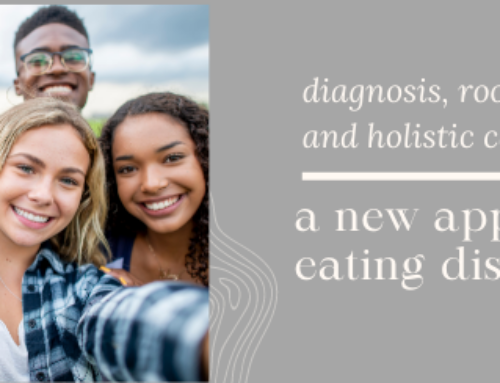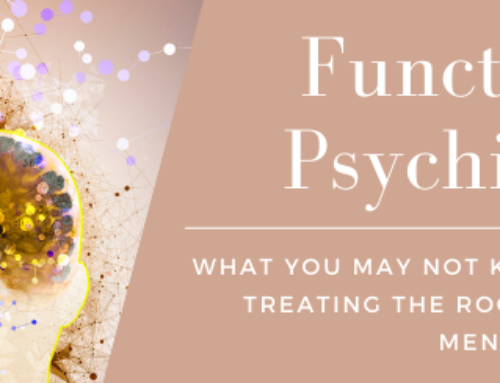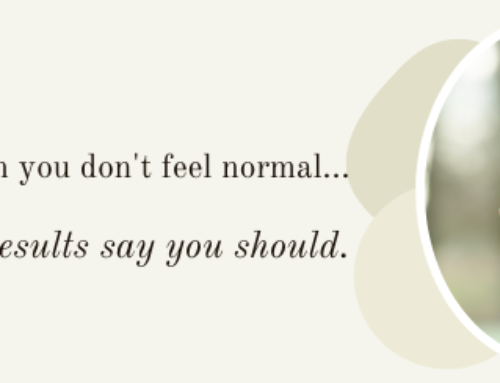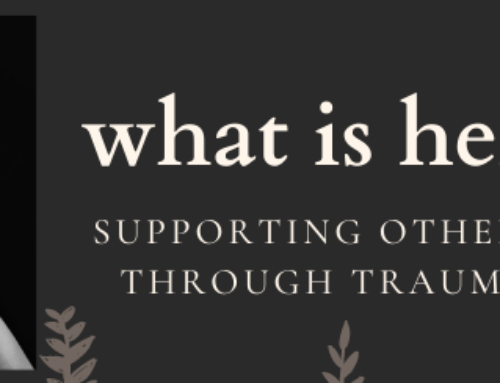We have all thought it, and we have all done it. A thought makes you “sick to your stomach”. Faced with a tough choice or situation, you go with your “gut-instinct”. These phrases have been in our vernacular for a long time, and yet, we have forgotten their literal meaning. In fact, these familiar idioms happen to be true. We have a bi-directional highway of information and instruction between our gut and our brain.
Treating The Mind And The Body Naturopathically in Boulder, CO
Many people suffering from mental health issues also have gastrointestinal symptoms but never correlate them. Meanwhile, a naturopathic approach to gut health has been beneficial for people dealing with mental health issues, even when no gastrointestinal symptoms are reported.
A variety of pharmaceutical medications exist for gastrointestinal symptoms. Unsurprisingly, and not unlike the pharmaceutical approach to mental health, these medicines treat just one aspect of a person’s experience.
A naturopathic approach treats the whole person — a treatment for longevity. Pharmaceuticals can have nasty side-effects, and often are not safe for long-term use.
Our minds and our bodies are one entity; treating them that way offers the best outcomes for whole-person well-being.
Gut Health is Determined by The Gut Microbiome
Before I dive deep into the bi-directional gut-brain connection, we need to understand the foundation of gut health. It is determined by the state of the gut microbiome.
The gut microbiome is the collective community of microbes inhabiting the gut. We need a healthy gut microbiome because they serve many, many important functions in the body. Specifically, they:
- Form a protective barrier to the enterocytes, our cells that line the intestines.
- Produce organic acids to control the pH near the wall of the gut, making the environment unfriendly to harmful microbes.
- Produce various anti-microbial substances against harmful microbes that might otherwise make us sick.
- Stimulate the immune system to respond to harmful microorganisms.
- Are helpful in neutralizing toxic environmental substances
- Can inactivate histamine (see my PWCB blog post on histamine and mental health)
- Can chelate heavy metals
- Suppress hyperplastic processes in the gut, which is the basis of cancer formation
- Provide a major source of energy and nutrients for the enterocyte cells lining the gut.
- Are involved in every part of digestion and absorption in the gut.
- Have identified roles in mood, emotional regulation, neuromuscular function, and regulation of the HPA (hypothalamic-pituitary-adrenal) axis.
Know What Harms The Gut Microbiome
Knowing all of the amazing things that the gut microbiome does for us, it is also helpful to be aware of things that will disrupt it. The following will damage healthy gut flora:
- Antibiotics
- A diet of refined carbs, sweeteners, chemically altered foods, and otherwise highly processed packaged foods.
- Prolonged fasting
- Disease/illness
- Stress
- Oral contraceptive pills
- Extreme physical exertion
- Alcoholism
- A variety of drugs
- Toxic exposures
- Extreme climates
Support The Gut Microbiome
Eating well protects the gut.
Dietary factors that will support gut microbiome health: A whole foods diet high in vegetable fiber, including fermented foods and free from packaged, processed foods, added sweeteners, and fake-food ingredients.
Gut Microbes Regulate The Gut-Brain Connection
Gut microbes (good or bad) regulate the bi-directional gut-brain communication pathway. The four identified major pathways within it include:
- Neurologic Pathway – involved in production of neurotransmitters in the gut such as GABA, serotonin, melatonin, histamine, acetylcholine, as well as the generation of catecholamines.
- Endocrine Pathway – involved in sleep/wake cycle regulation, feeding, mood, blood pressure regulation, and the stress response by directly stimulating cortisol release from the adrenal cortex and norepinepherine from the adrenal medulla.
- Humoral/Metabolic Pathway – bacterial metabolites exert hormone-like activity, have immunomodulatory properties, stimulate the sympathetic (fight-or-flight) nervous system, are involved in behavior modulation, regulate the synthesis of gut-derived serotonin (approximately 95% of total body serotonin). A bacterial metabolite called LPS stimulates an immune response and is known to be elevated in patients with major depressive disorder.
- Immune Pathway – immune-mediated gut inflammation is stimulated during times of dysbiosis, increasing gut-wall permeability and dysregulating bi-directional communication of the gut-brain axis as well as activating pain sensory pathways leading to visceral hypersensitivity.
Diet to Restore Gut Health after Acute Infection Guide
Anxiety And Depression Occur With Gastrointestinal Disorders
Given the body of biochemical research and evidence, it is no surprise that mood disorders, such as anxiety and depression, are strongly linked to gastrointestinal dysfunction.
Research also demonstrates that individuals who suffer from anxiety, for instance, can have an exacerbation after acute illness or antibiotic administration. Similarly, findings into gastrointestinal diseases show that individuals with IBS/IBD often have psychological diagnoses as well.
Day to Day Well-Being with Meghan Van Vleet, ND
Naturopathic doctors specialize in Whole Body Health, and naturopathic philosophy understood the gut-brain connection long before the research validated it. We can all put the gut-brain connection information to use in our day to day.
I suggest supporting a healthy gut-brain pathway through your daily habits and routines (discussed here), and using the knowledge of the bi-directional pathway when developing healthy strategies. Understanding that you can affect your gut health with your mental health (and vice versa) can offer coping mechanisms for life.
Naturopathic Coping Strategies For Life
For example, if your dietary routines are interrupted by forces outside of your control such as travel, holidays, or eating out, what do you do?
You might suffer with GI distress and get thrown off your entire game. Maybe your anxiety is triggered and your mood is compromised. Maybe both.
Knowing these possibilities (and possibly having experienced them before), consider minimizing/mitigating your situation by applying a different approach:
- Use mindfulness and gratitude. Acknowledge that while the food you are eating is not normally part of your wellness plan, you can still be thankful for food, you can be thankful for the company that you share your food with, and you can be grateful for the celebration that the food is a part of, etc. Most importantly, you can enjoy the experience of the foods you partake in — relish it.
- Try a meditation. Research has shown that food that is prayed over can have less of an inflammatory impact and is more easily digested. Instead of worrying about the harmful effects a meal or snack might have on your health, consider doing a visualization meditation where the food that you eat nourishes your body, every cell, your whole being.
Stressful Times: More Important Than Ever To Support The Gut
Conversely, life can deal us some surprises.
When you find yourself in the aftermath of a particularly stressful event, trauma, or illness, you may feel like your overall health takes a huge hit. In stressful times, when energy resources might be low, supporting optimal gut health is more important than ever.
The best way to support your gut is through the right diet. It helps quench the inflammation generated by any variety of stressors. Additionally, stress puts higher nutrient demands on your body which, if not met, can contribute to poor mental health and cognitive function.
Be Proactive: Work With A Naturopathic Doctor
Working with a naturopathic doctor can help you organize your day and life in a way that is proactive, rather than reactive. Expect life disruptions and have backup plans.
- Keep 1 or 2 nourishing, gut soothing meals in the freezer
- Know where you can get pre-prepared meals that fit the bill.
- If you can’t make your yoga class, for example, try 5-10 minutes of mindfulness and movement at home or in your hotel room.
- Have an app on your phone for mindfulness/meditation that you can use whenever you have 3 spare minutes.
Doctor As Teacher: A Principle Of Naturopathic Medicine
Change can be hard.
Lifestyle changes don’t need to happen overnight.
Let new education and understanding be the driving force behind your efforts. Working with a naturopathic doctor will give you a new education and understanding; it will help you make proactive lifestyle changes.
Knowing about the bi-directional gut-brain highway can help you best strategize when you are unable to control aspects of your situation and life.
Work With Meghan Van Vleet, ND, Naturopath in Boulder, CO
If you suffer with any amount of gastrointestinal discomfort, or if you struggle with your mental health, give me a call. I can help.
720-340-0193 or book online now.





